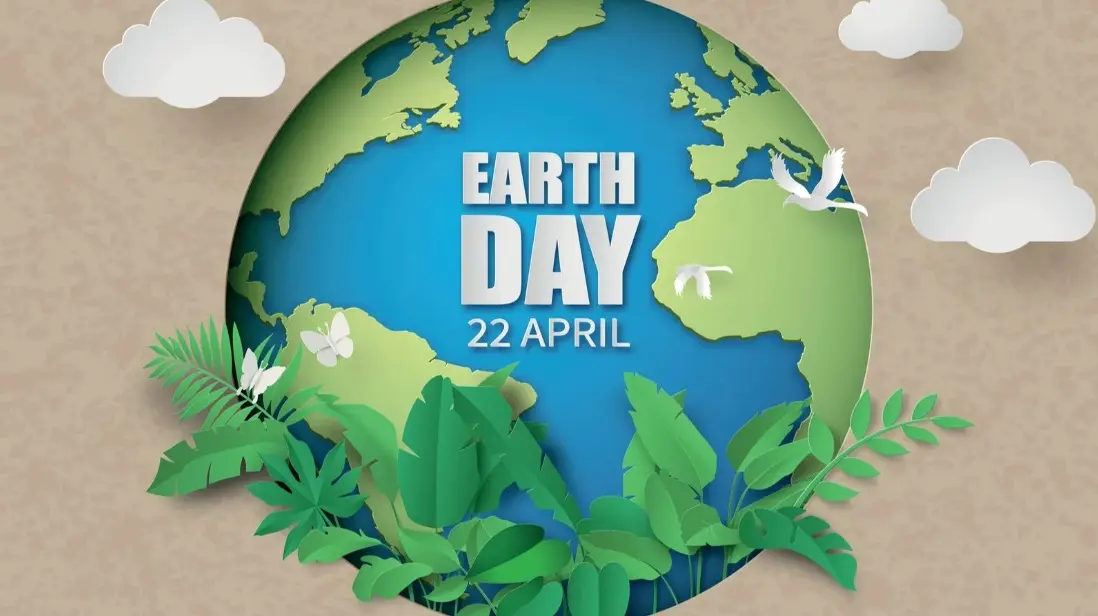April 22 is World’s Earth Day. First organized by a US senator, Gaylord Nelson from Wisconsin on April 22, 1970, to raise awareness on the worsening air and water pollution and recurring oil spills impacting the environment in the US and across the globe. It’s a day set aside to reflect on the current state of our livable planet and the challenges facing it.
Undoubtedly today, climate change caused by human activities, is wrecking the lives of millions of people across the globe. For several decades, scientists have drawn attention to the looming climate catastrophe primarily from greenhouse gas emissions from fossil fuels.
Like the scientific evidence of the dangers of smoking that were once met with a wave of scepticism sowing doubt on the sciences behind it, climate change scepticism was no exception. The oil industry borrowed the playbook of the tobacco industry in a more sophisticated manner to deny, deflect and sow doubts in the climate change science and the scientists putting them forward. The sole motivation was no different from the tobacco protagonists which is money, profit and wealth in apparent disregard for the reality of the consequences of their misinformation.
Until 2001, some of the well-sought-after universities in the United States received funding from tobacco industries which lobbied and influence these institutions on research areas with the ulterior aim of muting, deflecting and sowing doubts on the dangers of smoking in contrast to the scientific evidence attesting to the opposite.
Similarly, the effect of greenhouse gas emissions on our planet was a known phenomenon in the top oil giants’ circles from the early 70s but they chose to deploy their financial might and influence to sow doubt, discredit the science and sweep the issue under the carpet for decades.
Prof Naomi Oreskes, a science historian and planetary scientist at Harvard University in a book she co-authored with Erik M. Conway, NASA Science historian titled “Merchants of Doubt”, captures a group of researcher’s culture of denial, doubts, downplaying and discrediting of the science and scientists on the risks of global warming for several decades which warned humanity of the potential warming of our planet from greenhouse gas emissions.
According to a peer review research analysis by Prof Naomi Oreskes and Geoffrey Supran on ExxonMobil’s four decades-long history of climate change communications, the researchers found deliberate campaign of fostering doubt on the roles of fossil fuels in the warming of the planet. ExxonMobil scientists were circumstantially found to acknowledging the problem in private but softening, ignoring and “selective linguistics” on the issue in communications to the general public.
In a similar pattern of distraction, British Petroleum first put forward the notion of “personal carbon footprint” to shape discussions centred on fossil fuel and climate change deploying around $100 million/per annum between 2004 – 2006 according to the researchers.
Several internal documents from the oil giants congruently pointed to the fact that high up in their top echelon these companies were aware of the potential impacts of fossil fuels but chose to counter scientific projections through all means available (policy shapers and think tank e.g., CATO, API and the rest) by financing media communications debunking the science and scientists advocating climate change. In one such document, the oil giants made it an agenda to prevent a repeat of the “Kyoto Protocol “in the future.
The Kyoto Protocol was one of humanity’s recent global treaties urging countries to work towards reducing greenhouse gas emissions which seemingly caught the oil giants off guard.
According to the United Nations Environment Programme, the surface of our planet absorbs about 48% of the sun’s incoming energy while 23% is absorbed by the planet’s atmosphere. The reminder is reflected back into space and natural forces ensure that the incoming energy reflected to space is equal to the outgoing energy thus keeping the planet’s temperature stable.
However, the presence of accumulating GHGs (CO2, Methane & Nitrous Oxide and others) in the atmosphere traps more of the outgoing energy that ought to have escaped to space and is reflected back to the Earth’s surface causing temperature rise. At COP 26 in Glasgow, the US and Europe along with about 100 other countries, pledged to cut methane emissions from fossil fuels, waste and agricultural sectors by 30% by 2030.
Incongruously, those least responsible for the escalating greenhouse gas emissions (e.g., Africa: with just less than 4% GHG emissions) are prone to bear the brunt of the impacts of a warming planet. For example, persistent drought in East Africa is already causing immense hardship to the vulnerable populace through food shortages for their families and animals they rear and the wider ecosystem in the region.
To help vulnerable communities mitigate and adapt to the changing climate, the Green Climate Fund (GCF) was set up and the Biden administration recently contributed $1 billion to the fund.
Climate change impacts know no boundaries as evident in recent more frequent hurricanes in the US, the floods in New Zealand and the rare Indian Ocean hurricane Freddy that left a trail of devastation on countries such as Madagascar, Malawi and Mozambique.
The oil and gas giants’ era of science and scientists denial is waning as the UN’s Inter-governmental Panel on Climate Change agency reports has been consistent including the recent synthesis report released on March 20, 2023, which states that human activities are undeniably responsible for the warming of our planet and the window of opportunity to limit temperature rise to below 1.5°C in accordance with the 2015 Paris agreement is fast narrowing (the planet has already warmed by 1.1°C above pre-industrial levels) than previously thought.
Just as with the tobacco industry’s ultimate fate, the global oil giants may appear to be evolving with regards to climate change owing to the chorus of global voices including from their investors, shareholders, governments and research institutions/universities which once offer them intellectual solace are currently demanding a halt from fossil fuel proliferation.
Eng Isa resides in Lagos and can be reached via [email protected]

 Join Daily Trust WhatsApp Community For Quick Access To News and Happenings Around You.
Join Daily Trust WhatsApp Community For Quick Access To News and Happenings Around You.


